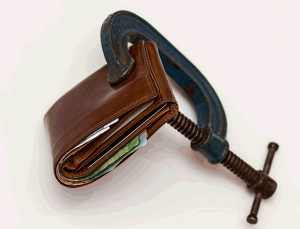 When her soon-to-be-ex filed bankruptcy, my client got a 1099-C for the joint credit card.
When her soon-to-be-ex filed bankruptcy, my client got a 1099-C for the joint credit card.
The form claimed that the debt was cancelled.
Therefore, she had additional income equal to the card balance.
Only, none of the statements on the 1099 were true.
The debt wasn’t discharged as to the non filing spouse. One spouse’s discharge does not discharge the personal liability of anyone else.
Further, the liability of the soon-to-be-ex wasn’t even discharged yet since it was the beginning of a 3 year Chapter 13.
The discharge doesn’t come until all the plan payments are made.
What to do?
Cancelled debt and taxes
Tax law requires the holder of a debt that is forgiven to report the forgiveness to the IRS.
The forgiveness can be voluntary, as in, we compromised the debt and now you owe less.
Or, it can be by operation of law: you filed bankruptcy and discharged the debt.
Either way, the tax man sees the amount of money that you no longer owe as if it were cash income.
And, if it’s income, then you owe tax on the income.
No tax in bankruptcy
If my client was the spouse who had filed bankruptcy, she would properly have gotten a 1099-C, at the end of the case. When the debt was truly gone.
But she wouldn’t have owed tax on the discharged debt, because bankruptcy is an exception to the rule.
Debt forgiven in any chapter of bankruptcy does not trigger cancellation of debt income. Therefore, no tax.
Tax treatment of cancelled debt is one of the sterling features of bankruptcy that make it superior to debt settlement.
Attacking the erroneous 1099
Strike first, is my thought, when the 1099 is wrong.
The credit card company issued the defective 1099. Write the issuer and request an amended 1099.
The deadline for sending out 1099’s is about six weeks earlier than the deadline for submitting the 1099’s to the IRS.
Jump on the problem right away and attempt to correct the situation before it gets to the IRS.
When the IRS gets bad information
If you couldn’t head off a submission to the IRS that was wrong, tackle the problem in your tax return.
You can’t just file the return as if the IRS didn’t think you had this extra “income”. You have to address the error and overcome it.
The IRS has a form for claiming an exception to the cancellation of debt income rule: Form 982.
Attach your explanation of why the 1099 is wrong to the 982. There isn’t a box, or an “other” category on the form where you can provide further information, so you’ll have to attach your explanation to the form.
If not resolved at the issuer level, my client will have to point out that she hasn’t been relieved of the debt, since she hasn’t filed the bankruptcy AND that her spouse hasn’t yet been relieved of the debt yet either, as there is no discharge.
Wash, rinse and repeat
I’ve spoken as though the IRS was the sole taxing authority involved.
If you live in a state with an income tax, you must repeat the drill described for the IRS with your state tax agency.
Personal liability required
Probably the most common error in issuing 1099’s is the matter of personal liability. If the debt cancelled was non-recourse, the borrower had no personal liability in the first place.
Cancellation of a non recourse debt doesn’t alter the borrower’s balance sheet. The borrower wasn’t personally liable before cancellation, so there’s no cancellation of debt income to address. More on the fictional 1099.
As I said, see above and wash, rinse and repeat.
More on tax
Discharging taxes in bankruptcy
When tax debt is a life sentence





